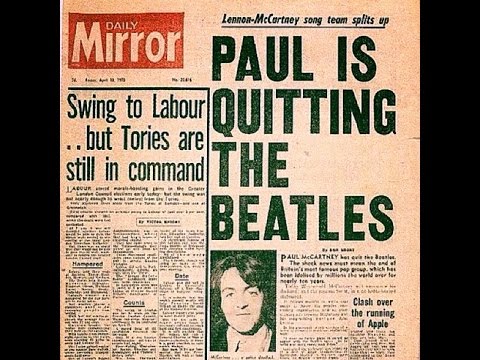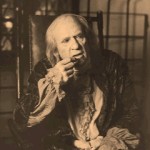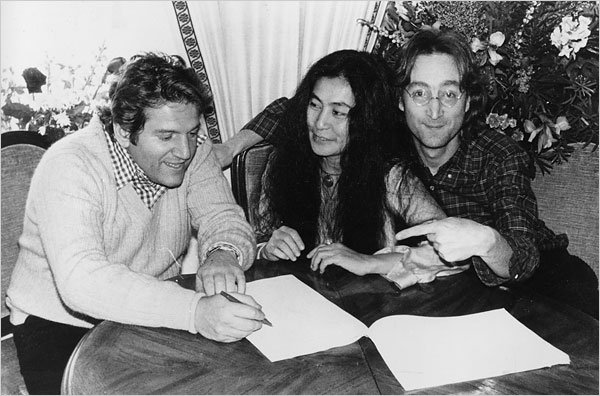
A music figure as significant as Michael Jackson just died. Many less tears will be shed and the internet will not be pushed to its limits. Allen Klein has passed at 77, from the effects of Alzheimer’s disease.
About two years ago, I bothered someone with this email.
(Why? Well, sadly, it’s what I do to amuse myself. B.S. always responds. He usually tells me how incredibly stupid I am, but he always responds. I enjoy B.S.’s writing so much, I seem to think he should write a book on anything that I find interesting and relatively unmined.)
B.S.,
Could it possibly be true that no one has ever written a book about Allen Klein? Seems like one of the most important figures in rock music history for better and for worse. The Don King of rock. Could arguably be called the man – – who broke up the Beatles!
Was it in your book that I read that Pete Townshend was told that Allen Klein had had more to do with the Who than he would ever know or understand?
B.S.’s response was as follows:
Are you nuts? How much of the rest of [your] life would you like to spend in litigation with him?
Yes, Pete said that about Allen.
You don’t want to fuck with the dude. He’s libel proof–a felon, I think twice over if I remember right. But he could find a hundred million ways to fuck up your life, even if he had nothing to do with Sam Cooke.
To say the least B.S. wasn’t interested in chronicling Mr. Klein’s life, despite its certain significance to the history of Rock and Roll.
You say that you’ve never heard of Allen Klein? That’s probably the way he liked it. He was essentially, despite my original choice of Don King, the Vito Corleone of Rock and Roll. The true genius criminals do their best to stay out of the limelight.
For years, nearly every huge Rock act in the world seemed to have paid a percentage to Klein as if they were worried that he would indeed break their legs.
Gangsters are usually brought down by their accountants and that was the genius of Klein. He was an accountant! When Rock and Roll acts like the Who, the Beatles, and the Stones all had no idea where their money was really going or coming from, Allen Klein was stalking every single penny.
Allen Klein had a sign on his desk that said, “Though I walk in the shadow of the valley of evil, I have no fear, as I am the biggest bastard in the valley.”
The initial genius of the street tough, accountant that was Klein was that he realized how corrupt record companies were in the early days of Rock and Roll. He’d walk up to a Bobby Darin or a Sam Cooke and promise them that he could recoup $100,000 or more if they’d merely allow him to look at their books, and he usually, in fact, did so with ease.
From there Klein went on to management, beginning with Sam Cooke.
“Sam said, ‘Well, what do you think?’,” Klein told Sam Cooke’s biographer Peter Guralnick.
“I said, ‘I think they’re treating you like a nigger, and that’s terrible – you shouldn’t let them do it.'”
Klein eventually became manager of the Rolling Stones. Eventually, the band wanted to be rid of Klein; Klein sued and wound up with the publishing rights to most of the Stones’ ’60s material.
Want an idea of what that was worth? You may want to ask the Verve, who wound up losing their rights to “Bittersweet Symphony,” when an arrangement to sample an orchestral version of “The Last Time” went bad. Klein’s company ABKCO eventually wound up with 100% of the hit’s royalties, which has to suck if you’re a one hit wonder like the Verve.
After the death of Beatle manager, Brian Epstein, the band was filled with tons of utopian ideas and fantastical dreams. It became Apple Records (and assorted other Apple side projects) and it cost them a fortune. The band that changed everything; the band that seemed able to print money was dangerously close to going broke.
Realizing that they desperately needed someone to manage their affairs, Paul McCartney put forward the name of his Father-in-Law, Lee Eastman, but John Lennon was piqued by the street fighting, brawler image of Klein, and, as George and Ringo were wont to do back then, they followed Lennon. In most comparisons between John and Paul, I usually come down on John’s side, but there is little doubt that McCartney was by leagues the superior businessman, and that he was right to distrust Klein.
Obviously, there is no one thing that broke up the Beatles, but the schism over Klein makes infinitely more sense than the other Beatles’ abhorrence of having Yoko Ono underfoot 24-7.
Musicians become successful because they are musicians, not because they are good businessmen (perhaps excluding Madonna and David Bowie). Playing endless nights in Hamburg doesn’t prepare you to swim with the piranhas and Klein was definitely a piranha.
There’s a reason that Keith Richards called the Klein/Stones settlement “the price of an education.”
I have no idea to what extent Klein was a lawbreaker, but he was obviously a stunning negotiator and bullying expert of the modern day lawsuit, either way my guess is that Klein won’t be remembered as favorably on future 4th of July’s as Thomas Jefferson and John Adams have been. In the end, however, my personal guess is that his influence on the first 50 years of Rock and Roll history is surpassed by less than a dozen other figures.
I’d still like to see someone write a book about his life, though. Sadly, it won’t be me because I hate accounting, reading legal contracts, and have a very small litigation budget. These three common traits made Allen Klein a very rich man.
Related Posts
 John Lennon and the most evil song in the Beatles catalog
John Lennon and the most evil song in the Beatles catalog Greg Dwinell: Sing Hollies in Reverse, Jon Brion: Meaningless, Largo, Aimee Mann et al
Greg Dwinell: Sing Hollies in Reverse, Jon Brion: Meaningless, Largo, Aimee Mann et al John Lennon: Wife Beater – Women’s Best Friend
John Lennon: Wife Beater – Women’s Best Friend God Bless Salieri, Ed Wood and the Worst Blogger on the Internet
God Bless Salieri, Ed Wood and the Worst Blogger on the Internet John Lennon Ruined Me
John Lennon Ruined Me Mark “the Bird” Fidrych RIP
Mark “the Bird” Fidrych RIP


Brad you are the best. Why does no one ever comment on your pages?